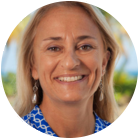Digital platforms empowering small-scale fishers
Around the world, fisheries supply chains are becoming increasingly digitized, creating faster and more reliable avenues of market access for small-scale fishers. These new digital tools have taken on an even greater prominence throughout the COVID-19 pandemic, as small-scale fishers need to adapt to supply chain shocks. However, it is not yet understood if—and how—these technologies improve fishers’ livelihoods and influence fishers’ decision-making.

The Stanford Center for Ocean Solutions (COS) is collaborating with Palauan non-profit Ebiil Society and ABALOBI to deploy a digital platform with fishers in the Republic of Palau. The ABALOBI mobile app, equipped with connected data, traceability, and marketplace platforms, enables fishers to track catches, profits and connect directly with buyers. Project partners will track socioeconomic and decision-making metrics before, during, and after deployment of the app. By surveying fishers and other stakeholders across fisheries supply chains, the team is helping communities ensure that new technologies support more sustainable, traceable, and equitable fisheries. The project targets three main objectives:
- Assess how using the ABALOBI app platform affects fishers’ decision-making;
- Investigate socioeconomic outcomes from using the platform; and
- Evaluate the platform for usability and assess fishers’ motivations to use the platform.
Led by COS in partnership with the Ebiil Society, the project team collected baseline data in October and November 2021. This included focus groups and a baseline survey with fishers at two control and two app deployment sites. Their research questions focused on understanding the impact of fisher use of the ABALOBI app, including categories such as income, diet, technology, well-being, and COVID-19. The team also collected data to customize the ABALOBI platform for Palau, considering unique factors like focal species, appropriate landing sites, fishing methods, and translation into Palauan.
The Ebiil Society, with the support of COS and ABALOBI, held two fisher scenario workshops in March 2022. During these workshops, fishers in both Ngardmau and Ngarchelong, both app deployment sites, ran through a series of fishing days scenarios in the app. They also experimented with the generation of diverse Fisher Logs (e.g., trip duration, catch methods, species targeted, quantity caught, costs incurred, sale information), in order to capture broad app feedback and specific scenario feedback.
Meet the team













Image Credits
Banner: ABALOBI; Baseline Data Collection: Caroline Ferguson; Fisher Workshops: Bianca Silva Santos
Statistics References
1: FAO 2020; 2: FAO 2020; 3: Singeo et al. 2021






